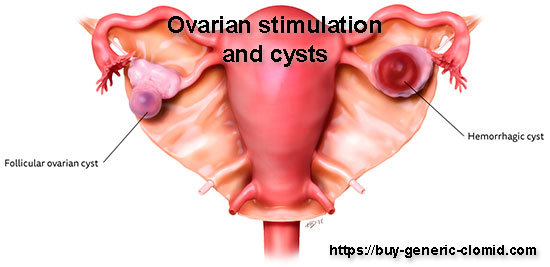Clomid is a drug that is used in gynecological practice for the treatment of female infertility. It belongs to the group of antiestrogens. This means that it blocks receptors (nerve endings) in the ovaries and hypothalamus, which leads to a decrease in estrogen production. Also, this drug stimulates the maturation of follicles, ovulation itself and the level of estradiol in the blood.
Female infertility: what are estrogens?
Estrogens are a group of steroidal female sex hormones that are produced primarily in the ovaries. Men also have a small amount of estrogen in their blood, which is produced by the testicles and adrenal glands (in both sexes). Estrogens are divided into three types: estrone, estriol, and estradiol. Clomid has a particular effect on estradiol levels in the blood.
Functions of estrogens:
Feminization. This means that it is thanks to estrogens that a woman has a feminine appearance. During adolescence, these hormones are actively produced and form secondary sexual characteristics (Breasts, buttocks, abdomen, female hair, growth of internal and external genitalia).
Reproduction. A group of hormones called estrogens activates the production of mucus in the vagina, as well as its epithelization, which creates the necessary conditions for maintaining the viability of sperm. Estrogens stimulate the maturation of the egg (follicle) and the onset of ovulation, in which the Mature egg is released from the ovary and it can be fertilized by the sperm. Further, after ovulation, if fertilization has occurred, estrogens are responsible for the preservation of the fetal egg, blood supply to the placenta and preparation of the breast of the expectant mother for lactation. If the egg is not fertilized by the sperm, these hormones activate the detachment of the inner layer of the uterus (endometrium) and, as a result, menstruation begins.
Other effects of estrogens include regulation of calcium levels, blood cholesterol, blood pressure, liver function, and mental activity.

How Clomid works
Clomid contains the main active substance – clomiphene, which blocks the receptors that perceive estrogens in the hypothalamus (the part of the brain that controls the hormonal background of the body). As a result, the production of gonadotropic hormones (follicle-stimulating and luteinizing) increases, which activate maturation and intra-secretory (endocrine) function of the follicle in the ovaries. As a result of all the above processes, the use of the drug Clomid leads to the fact that the level of estradiol in the blood increases significantly.
Causes and symptoms of reduced estrogen
- The main reason that the level of estrogens in a woman’s blood decreases is the lack of activity of the ovaries that produce them. As the body ages, there is also a shortage of them. An important reason may be various pathological changes on the part of the pituitary gland.
- Sometimes there is a decrease in the level of estrogens in women who are engaged in professional sports, when the physical load on the body is excessive. This phenomenon occurs due to the fact that testosterone (male hormone) is intensively produced.
- Another important point is the presence or absence of adipose tissue. It is proved that estrogens are also produced by fat cells. This means that exhaustion or sudden weight loss is extremely dangerous for the female body, namely for its reproductive ability.
Symptoms that occur with estrogen deficiency
- In adolescence, a lack of estrogen leads to insufficient development of secondary sexual characteristics, a decrease in the size of the uterus, late onset and failures in the menstrual cycle.
- In reproductive age, a decrease in the level of estrogens provokes a decrease in sexual desire, sharp mood swings, various violations of the duration and other indicators of the menstrual cycle. In parallel, memory and performance are reduced, insomnia appears and the skin condition (its elasticity, color, turgor) worsens. Stretch marks, pigmentation, and inflammatory rashes appear on the skin. Female infertility and dysfunctional uterine bleeding may occur.
Special instructions for female infertility that apply to the drug Clomid
Taking this medication increases the likelihood of multiple pregnancies.
The development of effective action of the drug is possible only if the patient has a sufficient amount of her own estrogens. The lower their level, the less effective Clomid is.
Treatment with anti-estrogenic drugs, as well as any other, should take place under the careful supervision of a gynecologist. Periodically, the ovarian function is determined and other special examinations, including vaginal ones, are performed.
During the course of therapeutic treatment with Clomid, it is recommended to take special care when working with mechanisms that carry a potential danger, and when driving a car.



